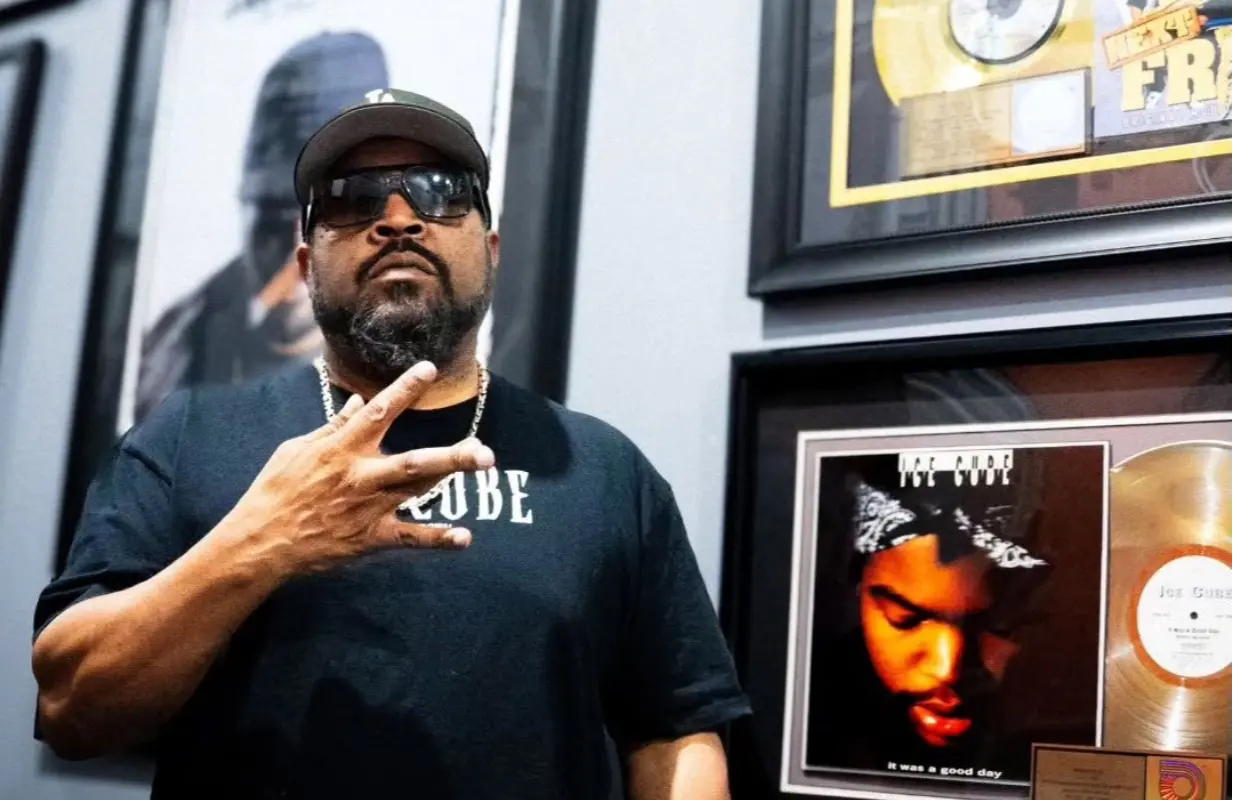“It won't have the same impact”- Ice Cube reveals why he won’t be offering Angel Reese $5 million like Caitlin Clark to play in his league
-
 Ice Cube Explains Why Angel Reese Did Not Receive $5 Million Offer to Join BIG3
Ice Cube Explains Why Angel Reese Did Not Receive $5 Million Offer to Join BIG3Ice Cube, who helped start the BIG3 basketball league, has explained why they didn't give Angel Reese, a WNBA player, a $5 million offer like the one they gave to Caitlin Clark. In a chat with TMZ Sports, Ice Cube said the main reasons were differences in sponsor backing and how much they thought each player would boost the league.
A few months back, BIG3 got people talking when they offered Indiana Fever newcomer Caitlin Clark a $5 million deal to play in the league's 2024 season. This deal included eight regular-season games and up to two playoff games, plus the chance to earn more from sponsorships and merchandise sales. Clark said no to the offer, choosing to focus on her WNBA career instead, but the size of the offer showed how valuable she is. Ice Cube talked about why Angel.
Reese, a Chicago Sky player, didn't get a similar offer. He pointed out that companies backing the league play a big role in these choices. He said the money for Clark's offer came after sponsors promised support. They thought her joining would make the league more visible and profitable.
"I don't think we can make that same offer because it won't have the same impact to the league," said Ice Cube .
He added that market evaluations and sponsor input, not just individual talent, guide the league's decisions. Even though BIG3 didn't give Reese the same business pitch, her achievements stand out. She's played well for the Chicago Sky in the 2024 WNBA season, scoring 13.8 points and grabbing 12.5 rebounds per game on average. She's also growing her brand off the court. She's now the cover athlete for NBA 2K26's WNBA Edition and has launched her own sneaker with Reebok - the first female player to do so with the brand in more than a decade.
Reese’s rising profile highlights evolving opportunities in women’s basketball
Reese took part in the first season of Unrivaled, a 3-on-3 league that Napheesa Collier and Breanna Stewart started together. She played for Rose BC, the team that won the championship, and got a $50,000 bonus. This shows she can make a big difference in other types of pro basketball, too.
While the commercial dynamics between players vary based on public interest and marketability, both Clark and Reese have charted individual paths that reflect their growing influence in women’s basketball. Ice Cube’s remarks underline the business-driven approach leagues like BIG3 must adopt, particularly when offering high-value contracts backed by sponsor confidence.
As the WNBA continues to grow in audience and brand investment, players like Clark and Reese are likely to see increasing opportunities both within and outside traditional league play.
TOPICS: Ice Cube
- Did Antifa firebomb Ice Cube's tour bus? Viral claim explored as Trump orders troops to Portland
- Rapper Ice Cube's tour bus reportedly firebombed by protesters in Portland after being mistaken for ICE deportation bus
- “Might get hands put on them”: Ice Cube claims there will be “consequences” if fans throw adult toys on the BIG3 court following recent WNBA incident
- Zachery Dereniowski’s Chantwan post goes viral as fundraiser raises over $100,000 for 51-year-old army vet and father released from prison